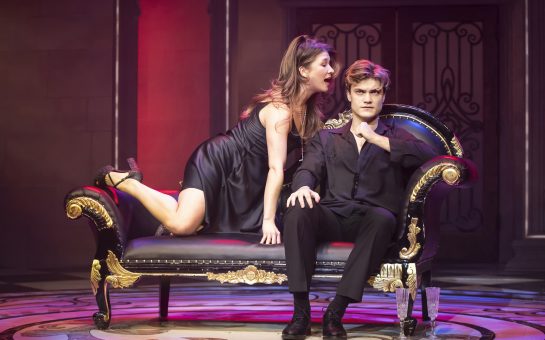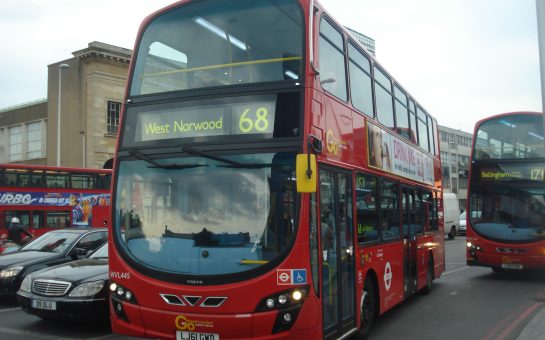Edd Gent and Hunter Ruthven discover Wimbledon is not just about tennis

By Hunter Ruthven and Edd Gent
There is something about the setting of Wimbledon’s tennis club that seems to inspire all those who walk its hallowed grounds.
The combination of pristine green lawns, historic honours boards and royal heritage creates an amphitheatre of drama and suspense that has created some of the most memorable sporting stories in times gone by.
This spectacle has been immortalised in many ways, and in previous years the famous tennis club has seen images of its annual two week grand slam tournament committed to canvas.
This year, however, will see the turn of the written word, as the All England Club decides to break from tradition and pass the torch to a wordsmith.
The appointment of Matt Harvey, as Wimbledon Tennis Championship’s poet-in-residence, was organised in collaboration with the Poetry Trust who were approached by the club’s museum, and asked to find a suitable candidate.
Matt, who has built up a strong following on the festival circuit, is a regular contributor to BBC Radio 4’s Saturday Live show and has published several books.
“There is always such razzamatazz surrounding big sporting events, I think its quite quirky and an interesting idea to have something like poetry,” he said.
Matt will not just be writing about the on-court action, as he feels part of the magic of Wimbledon is in its surroundings.
“They manage to keep a kind of English gardens kind of feel to it which his quite an achievement given the scale of the operation,” said Matt.
“I’ll be sketching the surroundings and commenting on the history, probably more than I’ll be commenting on, or writing about, the Williams sisters, or Andy Murray’s progress, or the sheer beauty of Federer’s forehand.”
His presence at the All England Club will be more of backseat role as he strives to continue the legacy of artists-in-residence.
On his impact at the event Matt said: “I don’t expect to be wheeled out at any point during play, I think it would be a backward step to replace hawk eye with a poet!”
An unusual idea for such a conservative setting is Matt’s hope to harness the power of social networking by using one line Twitter streams from tennis enthusiasts to create interactive poems, a technique which he has honed during his live performances.
“I think it’s an entertaining gimmick, and I would like to see if the same thing can work on this larger scale of Wimbledon.”
And to Matt’s surprise and mild apprehension this may not be his only interaction with competition-goers.
“It was put to me at some point that I might conceivably read to the queue and that’s obviously found its way into a press release. Now I feel obliged to probably go out there twice a day and inflict myself on the poor old queuers.”
But Matt is hoping that the response will be positive as he believes that his easy-going style makes his work accessible to those who may not be traditional poetry aficionados.
Naomi Jaffa of the Poetry Trust said: “We’re going to get protests from strict poetry die-hards who talk about this as being a dumbing-down, but Matt is brilliant at what he does.”
“This is an arranged marriage but we’ve thought very hard about the partnership, there aren’t many poets out there who would be as relaxed as Matt’s going to be.”
“I’ve often been told that I write the kind of stuff that people read and, even if they like it, think I could do that. I think that’s not such a terrible thing, I think it can be quite encouraging for people to think, ‘yeah I could do that’.”
Perhaps part of the appeal of sport poetry is that by relating to such an important and emotional part of many people’s lives, in universally understandable terms, it considerably widens its accessibility.
Wimbledon is not breaking new ground, the notion of a poet-in-residence having already been employed by Barnsley Football Club when they appointed Ian McMillan as the official ‘Bard of Barnsley’.
Ian said: “The thing about a sport poem is that it can aim at a non-poetry audience, an audience that would not normally pick up a poem.
“Of course even the football chant with all its vulgarity and its mass mentality is a form of poem, because it goes right back to oral and community roots.”
In recent years the blend of sport and the arts has seen a resurgence, with an increasing trend towards immortalising great sporting events on canvas, or in prose.
In March, Poet Laureate Carol Ann Duffy took the heartbreaking tale of David Beckham’s World Cup ending injury as the basis for an ode, using the captain’s damaged Achilles to compare him with the Greek hero.
“The public aspect of some lives provides a narrative, a story, for the rest of us to follow. We speak of ‘living the dream’, a ‘fairytale existence’ of ‘legends’ and of ‘heroes’,” said Carol Ann.
“Like Greek Myths, such public lives can contain triumph and tragedy and in a way we all learn from them, as we do from Ovid, or the Brothers Grimm, or Shakespeare.”
Ian would suggest that as well as the legends of our heroes and villains, the competitions themselves provide a rich source of material for writers.
“I wish the best poems were more like the best football matches because to me a football, cricket, rugby or tennis match in particular has got a narrative of hope and despair, and farce and ridiculousness.”
Naomi believes that this impulse towards public celebration of our great sporting feats is a quintessentially British trait.
She said: “As a nation we turn to poems in moments of great emotion and intensity, and I think that great sporting moments come under that.
“I think that those kind of moments can benefit from the sort of preservation that a poem can bestow on them.”
Throughout history lyrics have often united supporters in glory, or in despair, and emphasises the emotion that is generated.
In recent years the poem ‘On having given up cricket’, by Michael Laskey, was adopted by English Cricket fans during a test series against Australia, continuing on a tradition of linking cricket and the written word.
And on sunny afternoons, the celebrated words of ‘Jerusalem’ have rung out as fans get behind their team by reciting one of the most patriotic songs in England.
When the subject of a possible ‘epic’ written, should Murray manage to conquer all those put before him, Matt’s response was magnanimous. But for all of his protestation’s about wanting to focus on the less obvious aspects of Wimbledon, for the fans it is the hero’s that matter.
“I wonder what it is like for Andy Murray walking past that statue of Fred Perry. If he thinks, can you just get off my back.”




